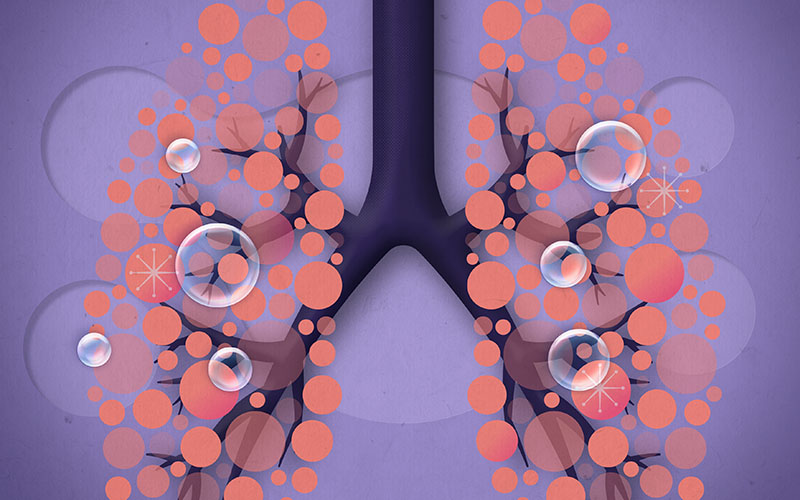 Want to receive Best Practice Bulletin directly to your inbox?
Sign up here.
Want to receive Best Practice Bulletin directly to your inbox?
Sign up here.
Published: 14th June, 2024
Contents
New from bpacnz: Beta blockers for cardiovascular conditions: one size does not fit all

Although use has reduced in recent years, metoprolol succinate still accounts for more than half of all beta blockers dispensed in New Zealand. It is a reasonable choice if a cardioselective beta blocker is required, but there is little to no evidence that metoprolol succinate is more effective than other cardioselective beta blockers, such as bisoprolol. Depending on patient circumstances, a beta blocker with different properties, e.g. vasodilating, water-soluble, may be more appropriate. Prescribers are encouraged to consider the pharmacological diversity of beta blockers and clinical characteristics of patients when deciding which beta blocker to prescribe.
This is a revision of a previously published article and includes updated recommendations and new guidance on prescribing beta blockers to certain patient groups, e.g. those with diabetes, those who are pregnant or breast feeding. Evidence on the optimal treatment duration of beta blockers post-myocardial infarction has also been revised.
Read the full article here. A B-QuiCK summary is also available here.
New clinical audit: Identifying inappropriate anticholinergic medicine prescribing

A new clinical audit on identifying inappropriate anticholinergic medicine prescribing is now available on our website. The purpose of this audit is to assess anticholinergic burden in older patients who are prescribed anticholinergic medicines and determine if their current treatment is still appropriate.
Given the range of medical conditions that anticholinergic medicines are used for, each clinician is likely to have a number of patients who are being treated with these medicines; some for longer than is recommended or with a higher dose than is necessary. These patients may benefit from a dose reduction or deprescribing, depending on the clinical scenario and the patient’s therapeutic goals and treatment preferences. Patients who still require pharmacological management may benefit from switching to medicines with lower or no anticholinergic activity, if available. Non-pharmacological interventions should also be prioritised to reduce the required dose of, or overall need for, anticholinergic medicines.
View the audit here
For further information on anticholinergic burden in older people, see: https://bpac.org.nz/2024/anticholinergic.aspx
In case you missed it: other latest resources from bpacnz

HIV pre- and post-exposure prophylaxis: a guide for primary care

Human immunodeficiency virus (HIV) pre-exposure prophylaxis (PrEP) and post-exposure prophylaxis (PEP) have been available in New Zealand from 2018. Since then, guidance and funding have been updated to increase access for those who would benefit from it. Both PrEP and PEP are available fully funded with Special Authority approval for people at high risk of HIV infection and can be prescribed by general practitioners and nurse practitioners in primary care (except for PEP in occupational HIV exposures). Given the reported barriers to accessing PrEP, it is important that your key patient populations for PrEP know that this is available for them. Also, consider how you approach these discussions; non-judgmental communication is critical to facilitate open discussion and improve sexual health outcomes, particularly for men who have sex with men (MSM).
Click here to read the full article. B-QuiCK summaries on PrEP and PEP are also available.
Community-acquired pneumonia

Pneumonia is a significant cause of mortality in children and older people, particularly among Māori and Pacific peoples. In New Zealand, Māori males are six times more likely to die from pneumonia than non-Māori males. Prompt identification and treatment will enable patients with initially less severe community-acquired pneumonia to be managed at home, reducing hospitalisation and mortality. As vaccination provides some protection against community-acquired pneumonia, ensure that patients are up to date with vaccinations they are eligible for, including seasonal influenza, COVID-19, pneumococcal and childhood immunisations. This article covers the clinical diagnosis and management of community-acquired pneumonia in children and adults.
Read the full article here. A B-QuiCK summary is also available here.
Identifying the risk of serious illness in young children with fever

Persistent fever is one of the characteristic signs of pneumonia in children. However, it can be difficult in young children to distinguish whether the cause of their fever is a life-threatening bacterial infection or a self-limiting viral illness that can be managed in the community. This resource, now updated based on 2024 guidelines, describes the symptoms and signs for assessing the risk of serious illness in children aged under five years presenting with fever.
Read the full article here
June is Bowel Cancer Awareness Month
This month (June) is Bowel Cancer Awareness Month (resources available here). New Zealand has one of the highest rates of bowel cancer incidence in the world, and bowel cancer is the second highest cause of cancer mortality (behind lung cancer), with more than 1,200 deaths per year. Many people with bowel cancer are asymptomatic, and more than one-quarter of people have metastatic disease at the time of diagnosis.
Read more
Key symptoms and signs that may suggest a diagnosis of bowel cancer include rectal bleeding, changes in bowel habit, weight loss and iron deficiency anaemia. Age and family history also impact the likelihood of cancer, and whether patients will meet referral criteria. Asymptomatic patients with a family history of bowel cancer indicating moderate to high risk can also be offered direct access to surveillance colonoscopy.
The introduction of bowel screening has led to an increase in the number of people being diagnosed with stage I bowel cancer. Diagnosis at an early stage offers a significant survival benefit; the five-year survival rate reduces from approximately 94% for localised (early stage) bowel cancer to approximately 13% for distant (late stage).
People aged 60 – 74 years are currently eligible for funded bowel cancer screening every two years using the faecal immunohistochemical test (FIT). The eligibility age is in the process of being lowered across all regions for Māori and Pacific peoples to age 50 years, to address the increasing incidence of bowel cancer in this population.
Opportunistically check if eligible patients have received a bowel screening kit and identify and address any barriers to completing the test.
For information on the referral of patients with features suggestive of bowel cancer, see: https://bpac.org.nz/2020/bowel-cancer.aspx
For information on the follow-up and surveillance for people after treatment for bowel cancer, and surveillance for people with polyps or inflammatory bowel disease, see: https://bpac.org.nz/2021/bowel-cancer.aspx and https://bpac.org.nz/2021/bowel-polyps.aspx
Medicine news: levetiracetam injections, morphine oral liquid, rivastigmine patches
The following news relating to medicine supply, of particular interest to primary care has recently been announced. Medicine supply information is also available in the New Zealand Formulary at the top of the individual monograph for any affected medicine and summarised here.
Levetiracetam injections to be funded without restriction for seizures
Pharmac has announced that from 1st July, 2024, levetiracetam injections will be funded without restriction for people who experience seizures. It was originally proposed that levetiracetam injections would be funded only for people experiencing seizures while receiving palliative care, however, following feedback, this has now been widened to anyone whose current treatment is not controlling their seizures. Many primary care clinicians will have patients with epilepsy, and while levetiracetam injections may not be initiated in primary care, it is important to be aware that this will be a funded treatment option.
Morphine oral liquid supply issue update
Supply issues affecting morphine oral liquid remain ongoing (last reported in Bulletin 95). Stock of RA-Morph 1 mg/mL is now available; other strengths of RA-Morph are expected to arrive later in 2024. Pharmac is advising pharmacists to dispense Oramorph 10 mg/5 mL (2 mg/mL; Section 29) in place of the three other strengths: 2 mg/mL, 5 mg/mL and 10 mg/mL, until stock of the other strengths of RA-Morph arrives.
N.B. Oramorph 10 mg/5 mL (2 mg/mL) contains ethanol 10% v/v and may not be suitable for some people, e.g. children or people with, or recovering from, alcohol use disorder or dependency.
Rivastigmine patches supply issue update
There are ongoing supply issues affecting stock of Rivastigmine BNM patches (as reported in Bulletin 83). Rivastigmine Patch 9.5 mg/24 hours (BNM 10) is now out of stock again and there is no alternative product available. Resupply is expected early July, 2024. Pharmac advises that there is currently stock in the supply chain, however, there will likely be a short period where the Rivastigmine patch BNM 10 is not available.
The supplier has advised that the shipment of Rivastigmine Patch 4.6 mg/24 hours (BNM 5) has been delayed until July, 2024. An alternative product, Exelon Patch 5 has been listed on the Schedule since October, 2023, and will remain available until stock of the Rivastigmine BNM 5 patch arrives.
COVID-19 funding changes: RATs, PPE
An extension to the funding of rapid antigen tests (RATs) for COVID-19 testing has been announced. RATs will now be funded up until 30th September, 2024 (replacing the previous date of 30th June). Pharmacies and practices can continue to order RATs as usual (e.g. via the online portal process).
A list of available RAT collection sites is available here.
Health New Zealand, Te Whatu Ora, recently announced it is discontinuing COVID-19 personal protective equipment (PPE) products via Central Supply at the end of June, 2024. From July, healthcare providers will need to purchase PPE products via conventional channels.
N.B. It has been reported that changes to COVID-19 vaccine eligibility are being considered. However, Pharmac has confirmed that there will be no changes to vaccine eligibility from 1st July. Everyone aged five years and over remain eligible to receive COVID-19 vaccination (click here for further information). Children aged six months to four years who are at higher risk of severe illness from COVID-19 are also eligible. Additional doses are available for some people; click here for eligibility criteria.
Highly Pathogenic Avian Influenza
Human cases of Highly Pathogenic Avian Influenza (HPAI; also known as avian flu or bird flu) H5N1 remain rare but have been reported in some countries, e.g. Australia, United States of America. The H5N1 strain first originated in wild birds in the Northern Hemisphere, in 2021. There have been no cases reported in New Zealand in either animals or humans, but it is important to be aware of this virus, as public health preparedness strategies around the world begin to develop.
The main risk factor for human transmission is contact with infected animals, e.g. working with or around infected animals, travelling to an area with confirmed HPAI cases or consuming raw or undercooked meat from animals that are likely infected with HPAI. Person-to-person transmission is limited.
It is currently unlikely that primary care clinicians will see any cases of HPAI, but have a higher clinical suspicion for this in a patient who presents with respiratory symptoms (e.g. fever, chills, cough, sore throat), a history of recent travel to an outbreak area or contact with a potential source. Laboratory testing is required for diagnosis. All suspected cases of HPAI must be notified to the local Medical Officer of Health.
For further information, including diagnostic laboratory tests, see the Communicable Disease Manual (the HPAI chapter is currently under revision; further information will be released from Public Health as needed).
Latest edition of Prescriber Update released
The June edition of Prescriber Update has been published. Particular items of interest for primary care include:
Cold and flu medicines containing pseudoephedrine
Cold and flu preparations containing pseudoephedrine are now pharmacist-only medicines in New Zealand, as reported in Bulletin 100. Pseudoephedrine is a sympathomimetic with nasal decongestant effects, however, there are certain groups in whom use in is not appropriate, including people with uncontrolled hypertension or severe coronary artery disease, those taking monoamine oxidase inhibitors or with known hypersensitivity to pseudoephedrine. Pseudoephedrine is classified as a controlled drug; pharmacists should ensure all sales are recorded and provide advice as appropriate. Approved pseudoephedrine products can be found using the Medsafe Product/Application Search. Read more here.
Consider dietary supplements as a potential cause of hyperkalaemia
There are numerous potential causes of hyperkalaemia. Prescription medicine use is often considered during assessment in patients with elevated serum potassium (e.g. ACE inhibitors, beta blockers, NSAIDs), however, clinicians should also ask about use of dietary supplements. This includes products explicitly marketed as being potassium supplements, as well as herbal preparations in which potassium is an ingredient, e.g. products containing stinging nettle, evening primrose, turmeric, dandelion. Read more here.
Medicine reactions to be aware of: ibuprofen, SSRIs
In the March, 2024, meeting, the Medicines Adverse Reactions Committee (MARC) recommended updates to medicine data sheets including: ibuprofen should be updated to state that the risk of renal tubular acidosis and severe hypokalaemia increases with higher doses of ibuprofen and following acute overdose (it may also occur within the recommended dose range); SSRI data sheets should be updated to contain consistent information about the risks associated with alcohol consumption (updates relating to alcohol have already been made to the data sheet for the SNRI, venlafaxine). Click here to read more.
Calcium channel blockers and the possible risk of new-onset eczema
As reported in Bulletin 97, Medsafe has issued a Monitoring Communication to seek more information from clinicians on the risk of new-onset eczema associated with the use of calcium channel blockers, e.g. amlodipine, diltiazem. Responses can be submitted to CARM until 8th October, 2024 (at which time the risk will be assessed; any adverse effect reports should continue to be submitted after this date).
In brief: other notable items
View the full edition of Prescriber Update here
Vitamin D supplementation recommended for breast fed infants
Health New Zealand, Te Whatu Ora, has published an updated statement for healthcare professionals on vitamin D and sun exposure in pregnancy and infancy in New Zealand. The statement was first published in 2020, and includes information on recognising people who are at risk of vitamin D deficiency, when vitamin D supplementation is recommended and sun safety advice.
A significant change in the 2024 update is the recommendation that vitamin D supplementation be considered for all exclusively or partly* breast fed infants until age one year (previously supplementation was only recommended for breast fed infants with specific risk factors for deficiency). Another new recommendation is to consider vitamin D testing for pregnant people with multiple risk factors for deficiency.
*Infants receiving ≥ 500 mL of formula per day do not require supplementation
Read more
Testing
Vitamin D testing is not routinely recommended for asymptomatic pregnant people and infants, but it may be appropriate for select groups, e.g. pregnant people with a history of vitamin D deficiency/insufficiency, those with abnormal laboratory results such as unexplained elevated serum alkaline phosphatase, low calcium or phosphate.
A new recommendation is that testing may be considered for pregnant people with all of the following risk factors for vitamin D deficiency:
- Naturally dark skin and/or of South Asian, African or Middle Eastern heritage
- Live south of Nelson/Marlborough during winter or spring
- Spend limited time outdoors (or have minimal sun exposure due to religious, cultural, personal or medical reasons)
Supplementation
Vitamin D supplementation (colecalciferol) should be prescribed to pregnant people if they have any risk factors for deficiency (listed above), or if they have confirmed deficiency (doses differ depending on whether supplements are for maintenance/prevention or deficiency; see NZF). People at lower risk of vitamin D deficiency during pregnancy can be advised that they may benefit from supplementation, particularly during the third trimester.
For infants, vitamin D supplementation (one drop [400 IU] colecalciferol oral liquid per day) is recommended for all exclusively or partly breast fed infants, initiated by age four weeks, continuing until age one year. This a key change to the 2020 recommendations, which recommended supplementation in infants who were exclusively or partly breast fed only if they had one or more risk factors for deficiency. The reason for the change is that sun exposure is the main source of vitamin D for young infants, and this is now no longer recommended. Breast milk alone is not likely to contain adequate levels of vitamin D for most infants, but is strongly supported to provide infants with essential nutrition, energy and immune benefits.
Infants receiving 500 mL or more of formula per day do not require supplementation as infant formula is fortified with vitamin D and intake should be sufficient. Infants who are exclusively formula fed also do not require supplementation.
Read the full statement here. The statement is intended to be read in conjunction with the Consensus Statement on Vitamin D and Sun Exposure in New Zealand (2012).
Grants for Māori students enrolled in healthcare studies
Health New Zealand, Te Whatu Ora, has announced that applications for Te Pitomata (The Power of Potential) grants for this year are now open for Māori students enrolled in a range of healthcare studies, including medicine, dental, midwifery, nursing, allied health and Rongoā. Māori students enrolled in postgraduate health-related studies may also be eligible. The grants are intended to help with expanding the Māori health workforce. Further information on the grants, including how to apply, is available here. Applications close Sunday 16th June, 2024.
NZF updates for June
Significant changes to the NZF in the June, 2024, release include:
- Cautions and patient advice updated in the zopiclone and benzodiazepine monographs (alprazolam, clonazepam, diazepam, lorazepam, midazolam, temazepam) regarding impairment of driving and skilled tasks
- New indications added to the clonidine (neurology and endocrine) monograph: autonomic hyperactivity in abrupt opiate withdrawal (unapproved indication), analgesia (unapproved indication)
- New patient advice added to the disulfiram monograph regarding the alcohol content of some medicines, foods and toiletry products
- Cautions updated in the morphine salts monograph to include excipient information (Oramorph brand of morphine oral liquid contains ethanol)
- Dosing regimen updated for dysmenorrhoea in the naproxen monograph
- Indications, contraindications, advice in renal impairment, adverse effects and dosing regimen updated in the pseudoephedrine monograph. Sections on drug action and patient advice have also been added.
- Promethazine is now contraindicated in children aged under six years (as reported in Bulletin 99). Adverse effects associated with promethazine use have been added for this age group.
- In the NZFC, the dosing regimen for promethazine has also been updated (removal of dosing information for children aged under six years for motion sickness and symptomatic relief of allergy such as hayfever, insomnia associated with urticaria and pruritus) and is under review
- Content reduced in the therapeutic notes in immunisation chapters for coronavirus disease (COVID-19) vaccines, influenza vaccines and meningococcal disease vaccines. Users are being advised to refer to the Immunisation Handbook for further information, available here. The remaining immunisation chapters will be updated over the coming months
You can read about all the changes in the June release here. Also read about any significant changes to the NZF for Children (NZFC), here.
Paper of the Week: Dietary interventions that can change the course of disease
It is well established that what we choose to eat and drink in our daily lives has a significant impact on our health. Many clinical conditions have some dietary component related to their development, e.g. obesity, type 2 diabetes, coronary artery disease and some cancers, and for some conditions, successful management is dependent on dietary modification, e.g. eliminating gluten for people with coeliac disease.
This week, two studies on the topic of diet and disease have been reviewed. Firstly, an article published in BMC Medicine examined the association between the Mediterranean diet and the development of microvascular complications relating to type 2 diabetes. A Mediterranean diet has previously been shown to reduce the risk of type 2 diabetes, however, this study showed that closer adherence to a Mediterranean diet by people who already have hyperglycaemia and/or type 2 diabetes is potentially protective against the development of diabetic nephropathy. Secondly, an article published in JAMA Dermatology investigated the degree to which dietary sodium intake is associated with atopic dermatitis. Consuming as little as 1 g above the daily recommended intake for sodium increases the odds of being diagnosed with atopic dermatitis, having active atopic dermatitis and having more severe atopic dermatitis. The findings from both these studies reinforce the role of diet in the management of chronic health conditions and could be discussed with patients at their next consultation.
Are there any dietary modifications you recommend for patients with conditions other than those discussed above? What evidence do you base these recommendations on? What strategies do you use to encourage adherence to dietary modifications?
Read more on the role of a Mediterranean diet in preventing diabetic nephropathy
- The study population involved approximately 33,000 participants from the United Kingdom (UK) Biobank*. Participants had reported hyperglycaemia alone (fasting glucose ≥ 5.56 mmol/L; n = 25,472) or reported hyperglycaemia and type 2 diabetes (n = 7,969). Participants with already established microvascular complications or missing dietary information were excluded.
- Participants’ original dietary information† was assessed using the Alternate Mediterranean Diet (aMED) index where a score of zero or one is assigned based on whether certain food groups are consumed at lower or higher levels than the sex-specific median level of the study population. A higher overall score (out of nine) suggests the participants diet more closely resembled a Mediterranean diet.
- Points were assigned for higher consumption of fish, fruits, legumes, ratio of monounsaturated to saturated fat, nuts, vegetables and whole grains, moderate alcohol consumption and lower consumption of red and processed meats
- The primary outcomes were microvascular complications associated with diabetes, i.e. nephropathy, neuropathy and retinopathy (determined by hospital records and death registries)
- Approximately 17% of participants in the hyperglycaemia group and 13% in the type 2 diabetes group had aMED scores of six to nine. In both groups, higher scores were associated with smaller waist circumference, lower level of socioeconomic deprivation and lower HbA1c.
- Overall, 3,392 microvascular complications were reported in 404,918 person-years of follow-up (median 12.3 years). This included 2,184 cases of nephropathy, 632 cases of neuropathy and 1,084 cases of retinopathy. Some participants were diagnosed with more than one microvascular complication.
- An inverse association was found between aMED score and diabetic nephropathy in participants with type 2 diabetes after adjusting for confounders (hazard ratio [HR] = 0.64, 95% confidence interval [CI] = 0.50 – 0.83) meaning participants who more closely followed a Mediterranean diet reduced their relative risk of diabetic nephropathy by 36%. A protective effect was still observed in participants with only hyperglycaemia and higher aMED scores; however, it was substantially reduced (HR = 0.98, 95% CI = 0.77 – 1.25).
- Analysis of the individual components of a Mediterranean diet revealed that higher consumption of legumes resulted in a greater reduction in relative risk of diabetic nephropathy in participants with type 2 diabetes compared to other components of the diet
- A protective effect of a higher aMED score was not observed for diabetic neuropathy or retinopathy
- Study limitations include the use of a single dietary assessment at one point in time as evidence of an individual’s long-term dietary pattern and relying on hospital records and death registries for outcome data potentially resulting in an underestimation of microvascular complications (as primary care data was not included). There is also no information on ongoing management over the follow-up period that may influence disease progression, e.g. adding more diabetes medicines, medicine adherence, lifestyle modifications.
- The UK Biobank population may not be generalisable to other populations as this cohort are more commonly older, female and living with less social deprivation than the general population
- The authors concluded that people with hyperglycaemia may reduce their risk of developing diabetic nephropathy by closely following a Mediterranean diet. They attribute the effect of this diet to the various components, e.g. vitamins and nutrients in fruit, vegetables and nuts reduce oxidative damage associated with hyperfiltration, omega-3 and fatty acids in fish and favouring monounsaturated fats may improve hyperlipidaemia and endothelial function.
- The importance of legumes in the Mediterranean diet was also highlighted with the authors suggesting dietary fibre may slow rapid elevations in blood sugar after meals, reducing risk factors for diabetic nephropathy, e.g. hyperlipidaemia, hypertension and low-grade inflammation
* UK Biobank is a longitudinal population study in the UK investigating the effects of genetics and environmental exposures on the development of disease. The study recruited approximately 500,000 volunteers aged 37 - 73 years between 2006 and 2010.
† Participants underwent a dietary assessment and completed lifestyle questionnaires as part of baseline testing
Qu C, Zhao J, Lai J, et al. Adherence to a Mediterranean diet is associated with a lower risk of diabetic kidney disease among individuals with hyperglycemia: a prospective cohort study. BMC Med 2024;22:224. doi:10.1186/s12916-024-03455-3
For further information on a Mediterranean diet, see: https://bpac.org.nz/2022/weight-loss.aspx#tab1
Read more on reducing sodium intake for atopic dermatitis
- More than 215,000 participants were included in the study using information from the UK Biobank* (54% female, average age = 57 years)
- Notably, the study cohort was 95% Caucasian
- An estimate of a participant’s 24-hour urinary sodium excretion was calculated using the International Cooperative Study on Salt, Other Factors, and Blood Pressure (INTERSALT) equation that accounts for age, sex, body mass index and electrolyte concentrations in urine†
- It was assumed that 24-hour urinary sodium excretion is equivalent to 90% of 24-hour dietary sodium intake and the results of a single baseline measure were indicative of an individual’s long-term daily dietary sodium intake
- The primary outcomes were a history of atopic dermatitis or active atopic dermatitis at the time of urine sampling (determined by medical records and prescription history). Atopic dermatitis severity grading was based on the type of medicines prescribed, e.g. potent corticosteroids and topical calcineurin inhibitor use indicated moderate disease, whereas systemic immunotherapy indicated severe disease.
- The overall mean estimated 24-hour urine sodium excretion was 3 g per day. Only 11% (23,643) of participants had an estimated 24-hour urine sodium excretion at or below the recommended maximum daily sodium intake (2.3 g per day in the UK, or 2.1 g using 24-hour urinary sodium excretion and INTERSALT equation).
- N.B. The New Zealand recommended dietary target for sodium is 2.0 g (equivalent to just under one teaspoon of table salt).
- Atopic dermatitis was identified in 5% of participants (10,839), of which 12% were considered to have active disease (1,282)
- Excess sodium consumption (1 g greater than recommendations) results in 11% higher odds of having atopic dermatitis, 16% higher odds of having active disease and 11% higher odds of more severe disease. Consuming sodium at recommended levels does not alter the risk of atopic dermatitis.
- This study has several limitations:
- A single 24-hour urinary sodium excretion only captures the dietary sodium intake over the previous 24 hours and may not accurately represent a person’s long-term sodium intake
- Sodium may not be the problem; processed foods contain high levels of sodium (along with other additives). Elevated sodium may indicate higher consumption of processed foods which are influencing atopic dermatitis.
- The UK Biobank population may not be generalisable to other populations as this cohort are more commonly older, female and living with less social deprivation than the general population
- These findings indicate there may be an association between dietary sodium intake and atopic dermatitis. Given the overconsumption of dietary sodium in most populations and established benefits of reducing sodium intake for other medical conditions, e.g. hypertension, suggesting patients trial a reduced sodium diet to reduce their atopic dermatitis symptoms appears to be a reasonable option (along with standard management).
* UK Biobank is a longitudinal population study in the UK investigating the effects of genetics and environmental exposures on the development of disease. The study recruited approximately 500,000 volunteers aged 37 - 73 years between 2006 and 2010.
† Participants provided urine samples as part of baseline testing
Chiang BM, Ye M, Chattopadhyay A, et al. Sodium intake and atopic dermatitis. JAMA Dermatol 2024; [Epub ahead of print]. doi:10.1001/jamadermatol.2024.1544
 This Bulletin is supported by the South Link Education Trust
This Bulletin is supported by the South Link Education Trust
If you have any information you would like us to add to our next bulletin, please email:
editor@bpac.org.nz
© This resource is the subject of copyright which is owned by bpacnz. You may access it, but you may not reproduce it or any part of it except in the limited situations described in the terms of use on our website.
